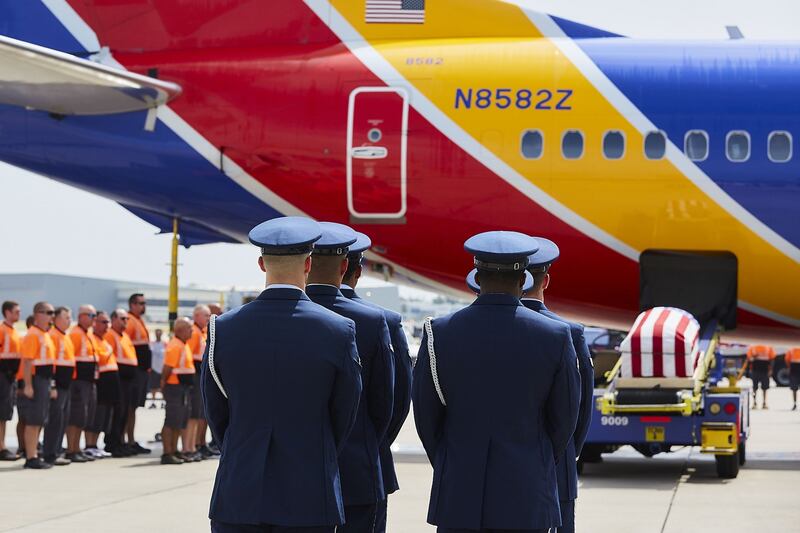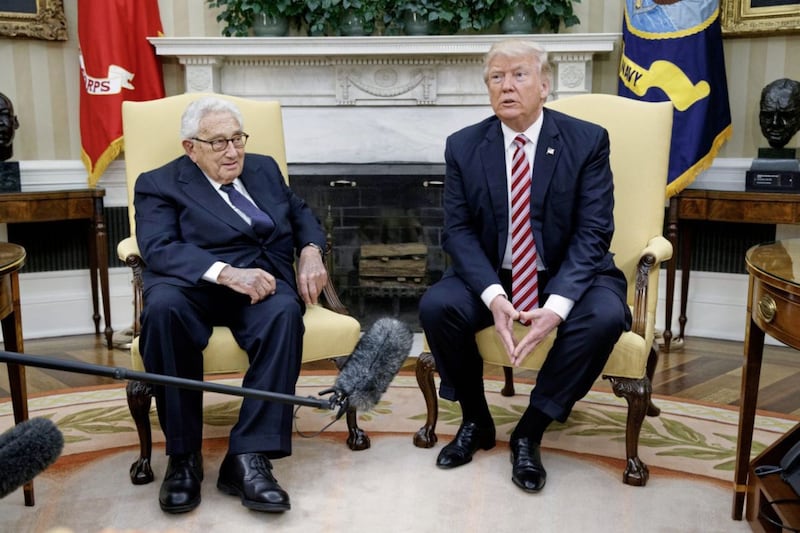The Vietnam War, Monday, BBC 4 at 9pm and RTE 1 at 10.30pm
There are many lessons to be taken from the Vietnam War but perhaps the central one is the danger of groupthink.
The American establishment was convinced that the expansion of communism was a danger to its way of life and had to be confronted.
Within a decade of the end of the Second World War, China had joined the Soviet Russia as a communist state and the US had been unable to prevent red control of North Korea.
Then in May 1954 the French, despite financial support from the US, are routed at Dien Bien Phu in Vietnam. Ho Chin Minh’s communist forces surround the isolated French airfield with 50,000 soldiers and 200 big guns.
After a two-month siege and 8,000 casualties, the French surrender and the Americans panic.
The US was convinced that the rest of Indochina would fall, while recently independent India was also developing close ties with the Soviet Union.
To be fair, the accepted lesson of the recently passed Second World War was that Nazism was allowed to grow in strength and confidence while the West, scared by the First World War, practised appeasement.
“Ambitious dictatorships need to be stopped early” was the view of US strategists in the 50s and 60s.
“We made a total misreading of a pivotal event,” a senior US official at the time told this new 10-part documentary. “What was really happening was that the days of colonial rule were over.”
The US pursued the wrong policy for 20 years and bears much of the responsibility for the deaths of 38,000 of its own soldiers, 250,000 South Vietnamese soldiers, one million of the North Vietnamese and Viet Cong forces and an estimated two million civilians.
In truth Ho Chi Minh was a nationalist more than a communist and had been supported by the US in establishing Vietnamese rule after the fall of Japan in 1945. He sought support from Russia only when the Americans failed to prevent the French from seeking to again subjugate Vietnam and relaunch its empire in 1945.
Communism may have been on the rise in the mid-1950s but the American analysis was pure paranoia. Consumerism and not war would defeat communism with a complete victory for capitalism arriving within 35 years of the fall of Dien Bien Phu.
The Vietnam War, which premiered on public service television in the US last month, gives this titanic struggle the World at War treatment.
The 18-hours of film feature interviews with 79 participants, aiming to tell the story from the ground up.
Both RTE and the BBC began broadcasting the documentary series on Monday night, with BBC 4 starting with a double episode.
It’s essential viewing if you have an interest in the folly of grand plans.
*****
The Child in Time, BBC 1, Sunday at 9pm
Autumn is peak television time. The nights begin to close in and new series and old favourites start to appear on the TV. Strictly and X-Factor are back and Sunday night is new drama time.
The latest from the BBC is The Child in Time, based on a thirty-year-old novel by Ian McEwan.
It’s yet another tale of missing children, with “powerful” and “difficult to watch” among the main phrases used by reviewers thus far.
Children do go missing and the hellish example of Madeleine McCann will never be forgotten, but surely there are other topics for television drama to consider.
In recent years we’ve had two series of The Missing, two series of Broadchurch focusing on child murder and also BBC 3’s Thirteen.
The are other genres than crime novels which commissioning editors could be reading.










